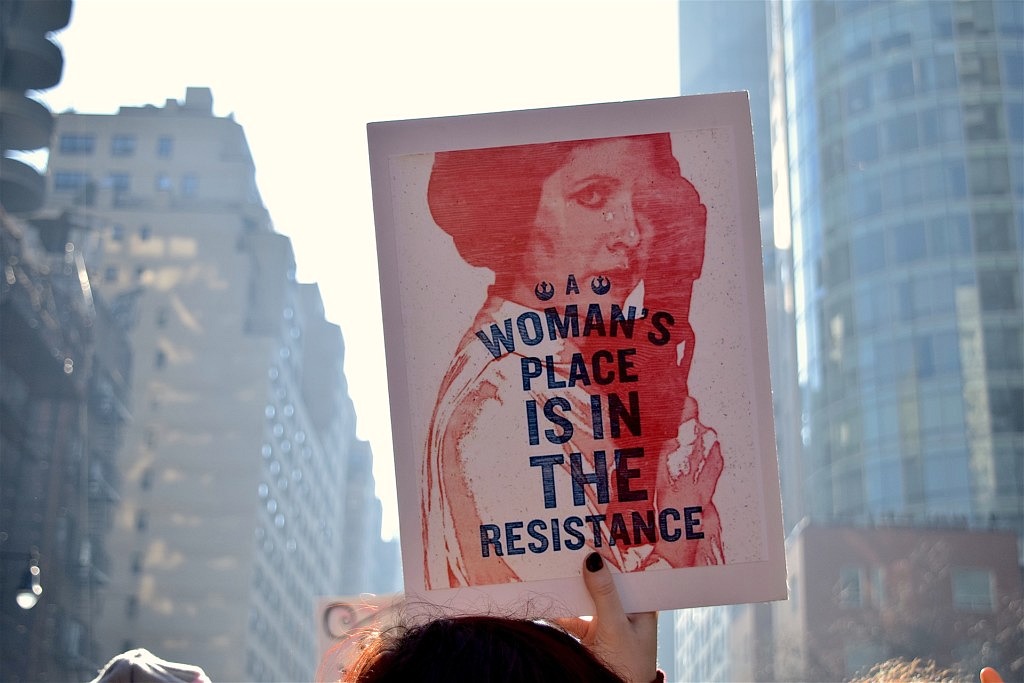Is Nursing Sexist?
Today is International Women’s Day. It has got me thinking a lot about the profession of nursing and how it has impacted women for hundreds of years. Historically, nursing was one of the few careers that women could actively pursue, generally giving it up when they married and had children. But it is impossible to deny that because women are the most represented in nursing, this profession stands in a unique space where women have had a voice in influencing the health care field for hundred of years. But does that mean that we have gained equality? And what does “equality” look like when the vast majority of nurses are female to begin with?
Something I have been thinking about lately is the way in which nursing is perceived by society and by the health care field. It is safe to say that the very fact that the majority of nurses are female has had a profound influence on the profession as a whole. Nursing very proudly considers itself to be a “caring profession” even more so than medicine. While there is no debate that physicians care a great deal for the health and wellbeing of both their patients and the population as a whole, it is undeniable that nurses are the ones who deal with the true heart of health care. We are the professionals who spend the most time with patients. We interact with their families, we hear their stories, we walk on a sometimes painful and confusing journey with them. We share their joys and their sorrows, we hold their hands, and we watch them make informed decisions that sometimes we don’t agree with. These are, in my opinion, inherently feminine qualities. Qualities that in no way are intended to be expressed only by women, but shaped by them none the less. It is really exciting to think of how so many female voices have worked to influence health care as a whole. Today, nursing is taken more seriously as a profession than ever before, and as the profession continues to develop, we see the roles of Nurse Practitioners, Registered Nurses and Licensed Practical Nurses evolve. This will allow these inherently ‘feminine’ qualities to play an even more important role across all areas of health care, including management and administration. And, hey! That’s a great thing! We women have some fantastic qualities!
One of the areas where I see the most obvious forms of female innovation in our profession is in our academic institutions. At the University where I got my nursing degree, of the 28 Assistant, Associate and full Professors, only 3 are men. The rest are women who make up a powerhouse of nursing influencers and researchers. They are just some of the thousands of academics contributing to the huge body of research that fuels evidence-based practice. I don’t know if any other field of research, apart from women’s studies, can boast having such a uniquely female perspective.
But are we equals? One of the grey areas for me as to whether or not women have gained true equality is in the treatment of male nurses. How are male nurses perceived by their patients and by their female colleagues. Women have a unique position in nursing in that we are the vast majority. How do we treat our male counterparts? Sadly, more often than not, I think female nurses have a more negative opinion of male nurses vs. their female colleagues. This may stem from the points I made above about the history of nursing, and the feminine characteristics therein. Do we appreciate what men have to offer to “our” profession? And do men adapt to the qualities of caring and empathy that nursing strives to achieve? I think that when it comes to gender roles in our profession, we could all stand to be a bit more open minded. Women have a unique ‘power’ in nursing, that we don’t necessarily have in other professions, and that level of responsibility should encourage us to make positive changes, not be sucked into a ‘maternalistic’ system, which may patronize our male coworkers. Often times I hear my female counterparts describe their male colleagues as “laid back” which I, personally, don’t see as a bad thing, but that is not always meant as a compliment. And there is the inevitable joke about handwriting and difficulty reading their charting. This is inherently sexist, and we women perpetrate it! And do not get me started on #malenursemonday.
Listen, I’m not here on international women’s day to talk about how hard done by men are. Women still have a long way to go to gain equality. But the fact of the matter remains that female nurses hold a lot of power in our profession and it is up to us to choose how we use that power. We can break down walls and be an example to others of just how incredible female-led professions can be! By supporting one another, being open and honest, we can model how all professions should behave. Let’s use our power for good, and change the world, yet again!
What do you think? What are some of the benefits of being in a predominantly female profession? What are some of the drawbacks? Let me know in the comments.



